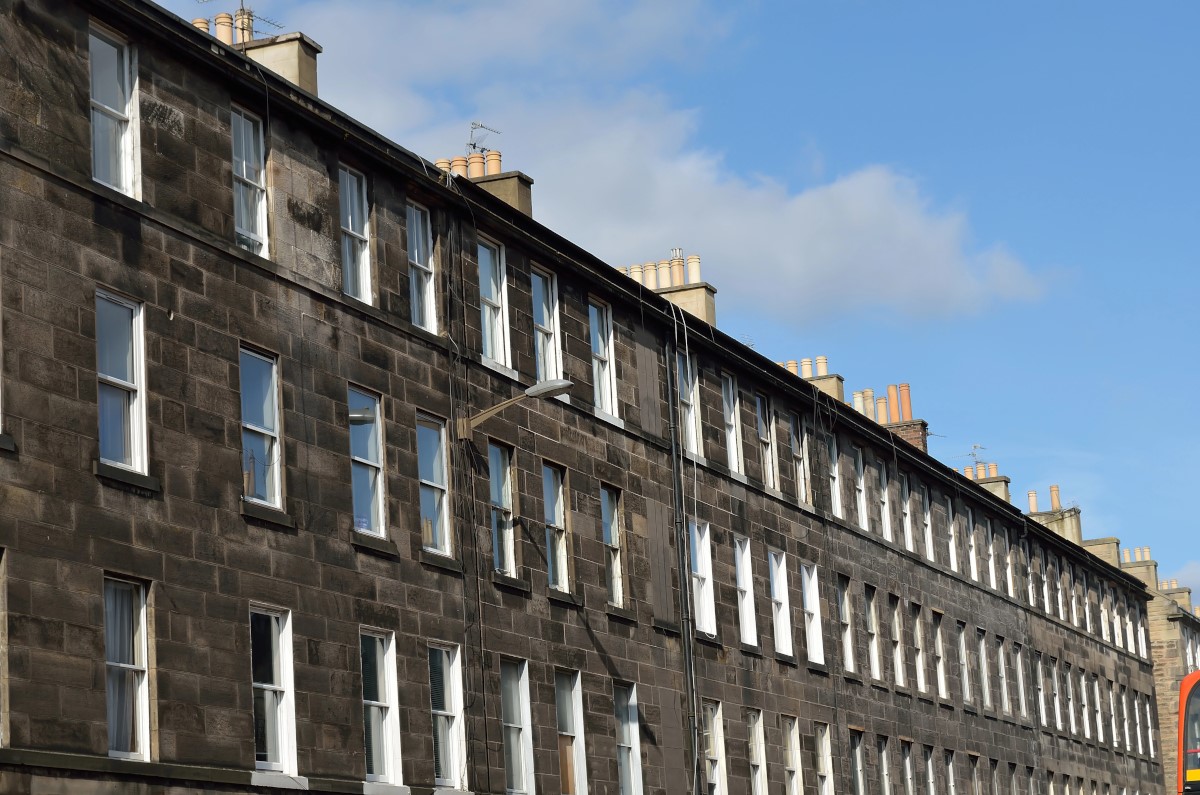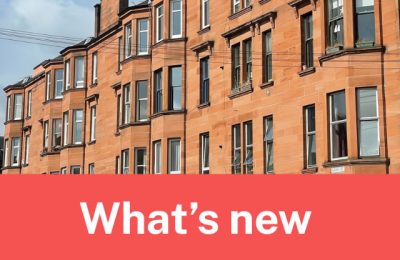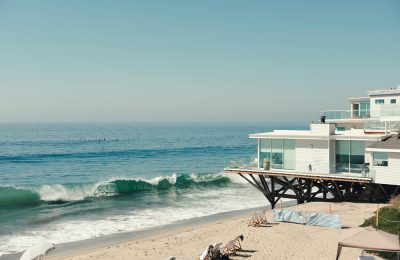In a city like Edinburgh, historic buildings dominate, and maintaining property exteriors becomes all the more important. For landlords, well-maintained exteriors can help command premium rents and attract quality tenants who value their living environment. What’s more, for tenement buildings, landlords have a responsibility to keep these communal areas in good condition, so it pays from a tenant point of view and for compliance.

[Image source: Deposit photos]
Common maintenance areas in Edinburgh tenements
Edinburgh’s tenements, many dating back to the Victorian era, require specific attention to exterior areas which are fundamental to the building’s longevity and habitability.
Roofing
The roof and guttering system is perhaps the most critical area to keep in check. Clear gutters and downpipes are critical to prevent water ingress, which can lead to damp problems inside the property and structural damage, not to mention significant repair costs.
Make sure you schedule in regular checks and any necessary repairs for slates, leadwork, and chimney stacks. This doesn’t just maintain the building’s weatherproofing but preserves its architectural integrity – a factor that’s particularly important in conservation areas where planning restrictions apply.
Masonry
Masonry and pointing work are essential for preserving tenement buildings and ensuring their long-term value. Timely repairs to mortar and stonework help avoid costly structural damage and signal to current and prospective tenants that the property is well cared for, a benefit when the age and history of the building is one of its unique selling points.
For tenants, well-maintained masonry means a safer, drier, and more comfortable living environment. Proper pointing helps prevent issues like dampness and heat loss, ensuring the property remains warm, efficient, and structurally sound. Ongoing maintenance helps landlords address any emerging problems proactively, for a more stable, high-quality property.
Gardens and parking areas
Well-maintained shared spaces also offer tenants valuable amenities, like secure parking spaces and storage areas which have become particularly appreciated in recent years. Communal gardens, pathways, and garages all contribute to the property’s overall desirability and can be significant selling points in Edinburgh’s competitive rental market. Check shared gardens for invasive plants and keep shrubs and trees cut back so they don’t become overgrown, and ensure garages and outbuildings are secure and safe for tenants to use.
Wessex Garage Doors explain that garage door springs are one of the most important areas to check: “The springs counterbalance the weight of the door panels, making it easier to open and close the door. There are typically two types of springs used: torsion springs and extension springs. Inspecting these components is essential for ensuring the safe and proper operation of your garage door…(but) be extremely cautious as they are under immense tension and can cause serious injury if handled improperly.”
Windows and doors
Windows and doors, both communal and individual, significantly impact both the security of a rental and its energy efficiency rating. Make sure that main entrances are secure and weatherproof to create a positive first impression for visitors and a safer home for existing tenants. Similarly, well-maintained windows provide essential insulation benefits, helping tenants manage their heating costs while also ensuring their security – factors that become increasingly important during cold winters.
Communal stairs
Whether inside or out, communal stairs demand consistent attention to ensure they’re safe, well-lit, and clean for easier accessibility. Over time, exposure to the elements can cause wear and tear, from slippery surfaces and crumbling steps to rusted railings and blocked drains, which can pose serious safety hazards. Make sure repairs are made promptly to these areas to prevent accidents and maintain accessibility for all residents, especially those with mobility difficulties.
Tenant communication for better maintenance
Exterior maintenance isn’t just down to landlords. Tenants play a part too, from identifying potential issues before they become expensive problems to reporting them promptly and accurately. A small issue with pointing or guttering can quickly escalate if it’s left unaddressed, so it’s important to make sure tenants know what to look for and how to report issues to protect both their own living conditions and landlords’ investment.
Tenant associations or committees can play a valuable role in advocating for maintenance needs too, especially in larger tenements where collective voices carry more weight. These groups are ideal for facilitating communication between residents and property managers, which makes it easier to prioritise maintenance works and ensure that tenant concerns are heard and addressed.
In a competitive rental market like Edinburgh’s, properties that are well-maintained have the potential to earn landlords higher rental yields and experience lower tenant turnover, but more importantly, they’ll maintain their value more effectively over time.
It’s also beneficial for tenants. Choosing properties that have undergone regular exterior maintenance means fewer disruptions, lower running costs, and the assurance that they’re living in a building that’s built to last. The tenements which define Edinburgh’s character deserve nothing less than the highest standards of care, and both landlords and tenants benefit when these standards are consistently met.









